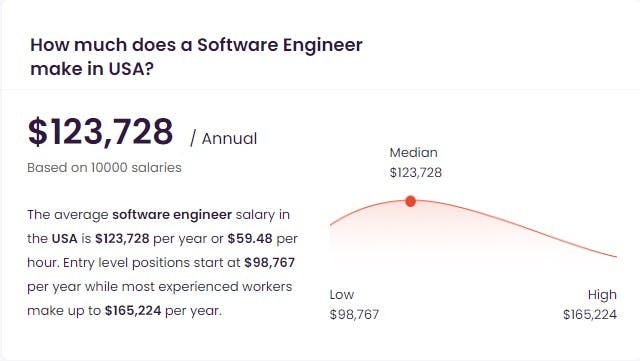Over three months ago, I transitioned from software engineering to technical writing.
My transition has been amazing so far, and I don't regret the choice for one bit.
This article will explain the differences I've experienced transitioning from software engineering to technical writing.
Let's start.
Work-life balance

Overall, both software engineering and technical writing offer a great work-life balance.
Software engineers working for startups may experience a tougher work-life balance than engineers working for large corporate companies.
Work-life balance in software engineering is team-dependent, and software engineers are more likely to work overnight to support the application they're building.
Software engineering is known for being high burnout.
On the other side, the absence of on-call shifts in technical writing makes work-life balance significantly better than in software engineering.
As a technical writer, there is no real "content emergency".
If an application goes down at any time of the day, technical writers are not responsible for it, and most likely, they won't be the ones to be contacted.
In technical writing, there may be periods throughout the year when the workload is higher, and there's more content to publish. Outside of those periods, work-life balance is optimal.
Meetings
Depending on your seniority level, software engineers can have many daily meetings.
Technical writers, too, can have many meetings with internal stakeholders.
Because technical writers don't create the products, they may have more meetings to validate their understanding before translating the knowledge into written documentation useful for the product's users. You'll be attending more meetings, as well as running meetings.
Pay and benefits
The average US salary for a software engineer is $123,728 per year**.**
Technical writers make, on average, $78,060 in the US annually.

On average, software engineers tend to make more money than technical writers.
The numbers illustrated above are averages.
In both roles, salaries vary greatly depending on the location, the sector (for example, the public sector usually pays less than fintech), skills and years of experience.
Benefits tend to be the same since most companies apply the same benefits to all employees.
Job security
For software engineers:
Overall employment of software developers, quality assurance analysts, and testers is projected to grow 25 percent from 2021 to 2031, much faster than the average for all occupations.[U.S BUREAU OF LABOR STATISTICS]
For technical writers:
Employment of technical writers is projected to grow 6 percent from 2021 to 2031, about as fast as the average for all occupations.[U.S BUREAU OF LABOR STATISTICS]
Both roles are projected to be in high demand in the future. However, there are statistically fewer technical writing jobs because of the nature of its position. Not all companies need documentation.
Software engineers are more subject to layoffs, even though tech talent is still in high demand.
Career progression
Both software engineers and technical writers have great career prospects.
Usually, software engineers seeking a career change go into technical writing.
Both roles offer the opportunity to transition into product management, project management and developer relations roles.
Key Takeaways
After reading this article, you know the difference between software engineering and technical writing. If you enjoyed this article, you'd benefit from subscribing to my FREE weekly newsletter.
Until next time!
🙋🏾♀️


